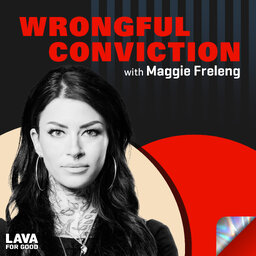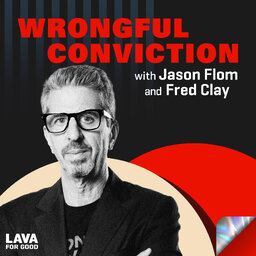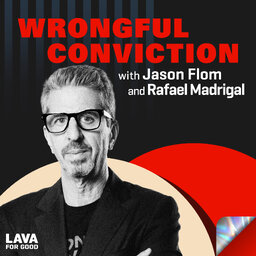#199 Jason Flom with Al Cleveland
A notorious informant father and son duo traded false information for $2k, wrongfully ensnaring 4 young men in the criminal legal system - one of whom was budding hip hop star, artist, and author, Al Cleveland.
Learn more and get involved at:
Deacon Cleveland Music
Al Cleveland's Artwork
3 Strands, 1 Cord: A Couple's Guide to Understanding Incarceration
Baby Shark: The Childhood Genius of Daymond John
https://www.ohioinnocenceproject.org
Wrongful Conviction is a production of Lava for Good™ Podcasts in association with Signal Co. No1.
We have worked hard to ensure that all facts reported in this show are accurate. The views and opinions expressed by the individuals featured in this show are their own and do not necessarily reflect those of Lava for Good.
In 1 playlist(s)
Wrongful Conviction
Hosted by celebrated criminal justice reform advocate and founding board member of the Innocence Pro…Social links
Follow podcast
Recent clips

Wrongful Conviction with Maggie Freleng Season 5 - TRAILER
01:37

#563 Jason Flom with Fred Clay
57:32

#562 Jason Flom with Rafael Madrigal
48:40
 Wrongful Conviction
Wrongful Conviction